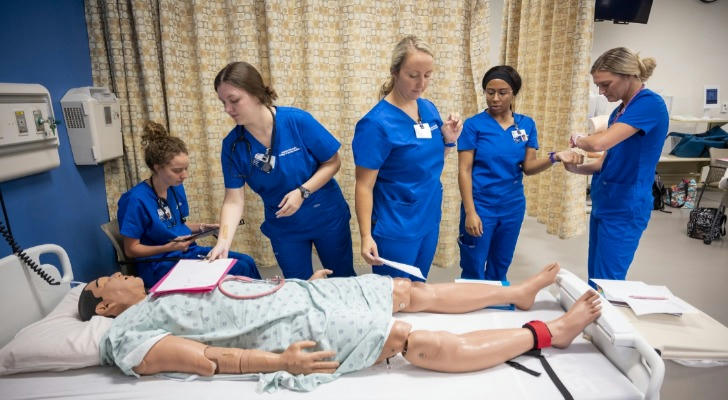Registered Nurse Course: Start Your Nursing Career
Registered nurse (RN) is a key position in the healthcare system. Many people are concerned about how to enter this profession, but the entry threshold and course selection often become a problem. Understanding the basic requirements of the registered nurse course, the current status of the industry and the employment environment will help you plan your learning path reasonably and enter the nursing industry smoothly.

I. Overview of the registered nurse profession
Registered nurses are responsible for patient care and health promotion. Their workplaces include hospitals, clinics, community health centers and home care.
Registered nurses must hold a valid license to engage in nursing work. The license is managed by the nursing committee of each state, and the specific requirements vary.
Nursing work covers condition assessment, medication management, patient education and assisted treatment. Some nurses can focus on professional fields such as pediatrics and geriatric care.
II. The current status and employment environment of the registered nurse industry in the United States
The demand for registered nurses in the United States continues to grow. Driven by the aging population and the expansion of medical services, the employment growth rate is expected to be higher than the average in the next decade.
Registered nurses have stable salaries, with an average annual salary of about $70,000, and the specific amount varies by region and experience.
The nursing industry has a variety of working environments, including emergency rooms, operating rooms, long-term care facilities, etc., with high occupational pressure and responsibility, but strong occupational stability.
The licensing requirements for registered nurses vary from state to state, and usually require passing the National Licensing Examination for Registered Nurses (NCLEX-RN) and completing certain clinical practices.
III. Types of registered nurse courses and learning content
Common degrees include the Associate Degree in Nursing (ADN) and the Bachelor of Science in Nursing (BSN), the latter of which is more competitive in career development.
Course content covers anatomy, physiology, microbiology, nursing theory and practice, pharmacology, and clinical skills training.
Students usually need to complete clinical rotations to gain practical experience in hospitals, clinics, and other institutions.
Some schools offer flexible online courses, which are suitable for working people or students with limited time.

IV. Key factors for choosing a registered nurse program
1. Program accreditation and state recognition: Choose a program that is accredited by the National Accreditation Commission for Nursing (ACEN) or the Commission on Certified Nursing Education (CCNE) to ensure that the degree is recognized by the state nursing board.
2. Curriculum and practice opportunities: Give priority to courses that include rich clinical internships, which are helpful for passing the license exam and finding employment.
3. Tuition and funding: Understand the course tuition and available financial aid (such as federal grants) to plan your financial burden reasonably.
4. Graduate pass rate and employment rate: Pay attention to the school's registered nurse license exam (NCLEX-RN) pass rate and graduate employment status, and choose a school with better employment support.
V. Career development suggestions for registered nurses
1. Obtain a license: After completing the course, take and pass the NCLEX-RN exam to obtain a registered nurse license.
2. Continuing education: Consider pursuing a bachelor's degree in nursing (BSN) or a master's degree (MSN) to expand your professional field and promotion space.
3. Professional certification: Choose professional certifications such as pediatric nursing, emergency nursing, and elderly care according to your interests to improve your professional competitiveness.
4. Soft skills training: Communication skills, teamwork, and stress management are particularly important for nursing work. It is recommended to actively practice them during study and internship.

Registered nurses are a high-demand and stable position in the medical industry. By choosing the right courses, completing the necessary studies and internships, and successfully passing the license exam, you will have the core competitiveness to enter the nursing industry. Reasonable planning of learning paths and career development will help achieve long-term career goals.
